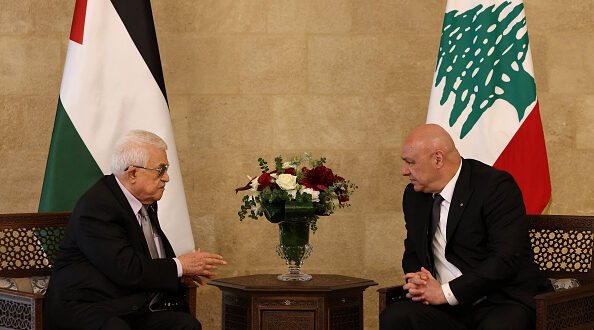Latest Developments
- LAF Begins Process of Consolidating Arms: The Lebanese government claimed on August 21 that it had begun disarming Palestinian factions in the Burj al-Barajneh refugee camp in Beirut, as part of a broader effort to ensure the state’s monopoly on the use of force. Lebanese President Joseph Aoun and Palestinian Authority President Mahmoud Abbas agreed to the measure when they met on May 21. U.S. Ambassador to Turkey and Special Envoy to Syria Tom Barrack hailed the development as “a great accomplishment” and “a historic step toward unity and stability.” Palestinian spokespersons played down the news, with a Fatah official telling Reuters that the only weapons taken so far were those that had entered the camp illegally one day prior.
- Terrorists Reject Disarmament: Hamas and Palestinian Islamic Jihad, calling themselves “the Palestinian Factions in Lebanon,” emphasized that the disarmament was a local matter, and “has no connection to reality.” “Our weapons have always been and will always be linked to the right of return and the just Palestinian cause and will remain so as long as the occupation remains on Palestinian soil,” they stated. Earlier this month, the Lebanese government approved a plan to disarm all militant groups in the country in order to enable the Lebanese Armed Forces (LAF) to exercise a monopoly on force, as mandated by UN Security Council Resolution 1701. The Lebanese Shiite terrorist group Hezbollah, which is backed by Iran, has vowed to keep its arms, threatening that Lebanon could be plunged into a civil war if the government forces the group to relinquish its arsenal.
- U.S. Requests Reduction in Israeli Strikes on Lebanon: The Trump administration has reportedly requested that Israel reduce “non-urgent” strikes in Lebanon following Beirut’s pledge to task the LAF with disarming Hezbollah. Barrack, who is in discussions with Israeli officials, has reportedly laid out a roadmap for the complete Israeli withdrawal from the five posts it currently occupies inside southern Lebanon. Washington is reportedly eyeing the construction of an “economic zone” in parts of southern Lebanon near the border with Israel, with Saudi Arabia and Qatar reportedly agreeing to invest in the region’s reconstruction.
FDD Expert Response
“The Lebanese government will say anything to end Israel’s presence and operations in Lebanon, as opposed to taking real, concrete measures to disarm Hezbollah. After an IDF withdrawal, there’s considerably less pressure on Beirut to confront the Iran-backed group at all. To date, the Lebanese government has not given the LAF the order to disarm Hezbollah. In contrast, Hezbollah security official Wafic Safa and LAF Commander Rudolph Haykal have held meetings to both avoid confrontation between the two parties and ensure that any steps taken will be done through mutual agreement.” — David Daoud, Senior Fellow
“While this is a positive step, the Lebanese state is only targeting a limited number of Palestinian weapons in the refugee camps, mainly those belonging to Fatah and its aligned factions. Groups like Hamas and Palestinian Islamic Jihad, however, continue to resist disarmament and reject Mahmoud Abbas’s calls. It will be up to the Lebanese state to demonstrate to Israel and the United States that it is willing to compel these groups to disarm, especially given that Hamas and PIJ have previously used Lebanese soil to launch attacks against Israel.”
 Eurasia Press & News
Eurasia Press & News




